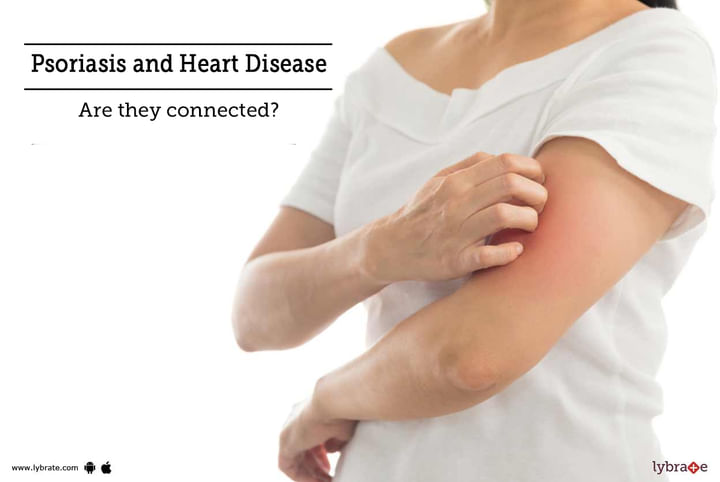Psoriasis and Heart Disease - Are they connected?
Cardiovascular diseases are the leading cause of deaths worldwide, claiming an estimated 17.9 million lives every year. While poor lifestyle choices – physical inactivity, poor diet, and smoking – combined with a number of underlying medical conditions, like diabetes, hypertension combined are known as the most common risk factors for heart diseases, recent studies suggest a link between cardiovascular problems and psoriasis. Psoriasis refers to an autoimmune condition, where the skin cells accumulate to form dry, itchy, and scaly patches on the skin.
What is the connection between psoriasis and heart disease?
Over the last ten years, a strong body of evidence has emerged that indicates that individuals with psoriasis are possibly at a higher risk of having strokes and heart attacks, as compared to individuals without the skin condition. People suffering from severe psoriasis have the greatest risk of cardiovascular disorders. In these patients, the rate of occurrence of strokes and heart attacks maybe twice or thrice more in non-psoriasis patients.
Previous studies have established that other risk factors of heart diseases, including high cholesterol, high blood sugar, and minimal physical activity are common in people, who have psoriasis. Apart from these, the inflammation caused due to psoriasis is a major risk factor for having heart disorder.
Like any other autoimmune condition, psoriasis causes your immune system to respond abnormally to a perceived threat. The reaction may trigger inflammation in the body. The inflammation can even affect your blood vessels and cause them to develop atherosclerosis – it refers to the accumulation of plaque in the arterial walls. Over time, plaque interrupts or slows the blood flow to your heart, putting you at a high risk of having a heart attack.
Certain treatment methods for psoriasis may lead to irregular cholesterol levels. This may cause the arteries to harden and increase the chances of getting a heart attack. As per the reports of the British Journal of Dermatology, those who have psoriasis are also susceptible to coronary artery disease.
Research also claims that nearly 30% of all psoriasis patients eventually develop a rare condition, known as psoriasis arthritis – the condition combines psoriasis with the sore and swollen joints of arthritis. A recent study has linked the skin disease with an increased risk of arrhythmia, which can severely damage or weaken the heart, thus leading to a range of heart problems. The study concluded that psoriasis arthritis carries a greater risk of arrhythmia. Additionally, based on the studies of the American Journal of Cardiology, people below age 60 and with serious forms of psoriasis are prone to heart diseases.
How to deal with psoriasis-related heart disease
Psoriasis may mean a higher risk of cardiovascular problems. However, you can take some measures to strengthen your heart and prevent any complication. Reducing your stress levels, eating a healthy diet, exercising regularly, and adopting positive lifestyle changes can help you cope with the symptoms and possible health risks of heart disease. Visit a doctor and discuss any concerns you might have regarding your cardiovascular health or chronic skin condition. For elderly people above age 60, annual health checkups are strongly recommended.


+1.svg)
